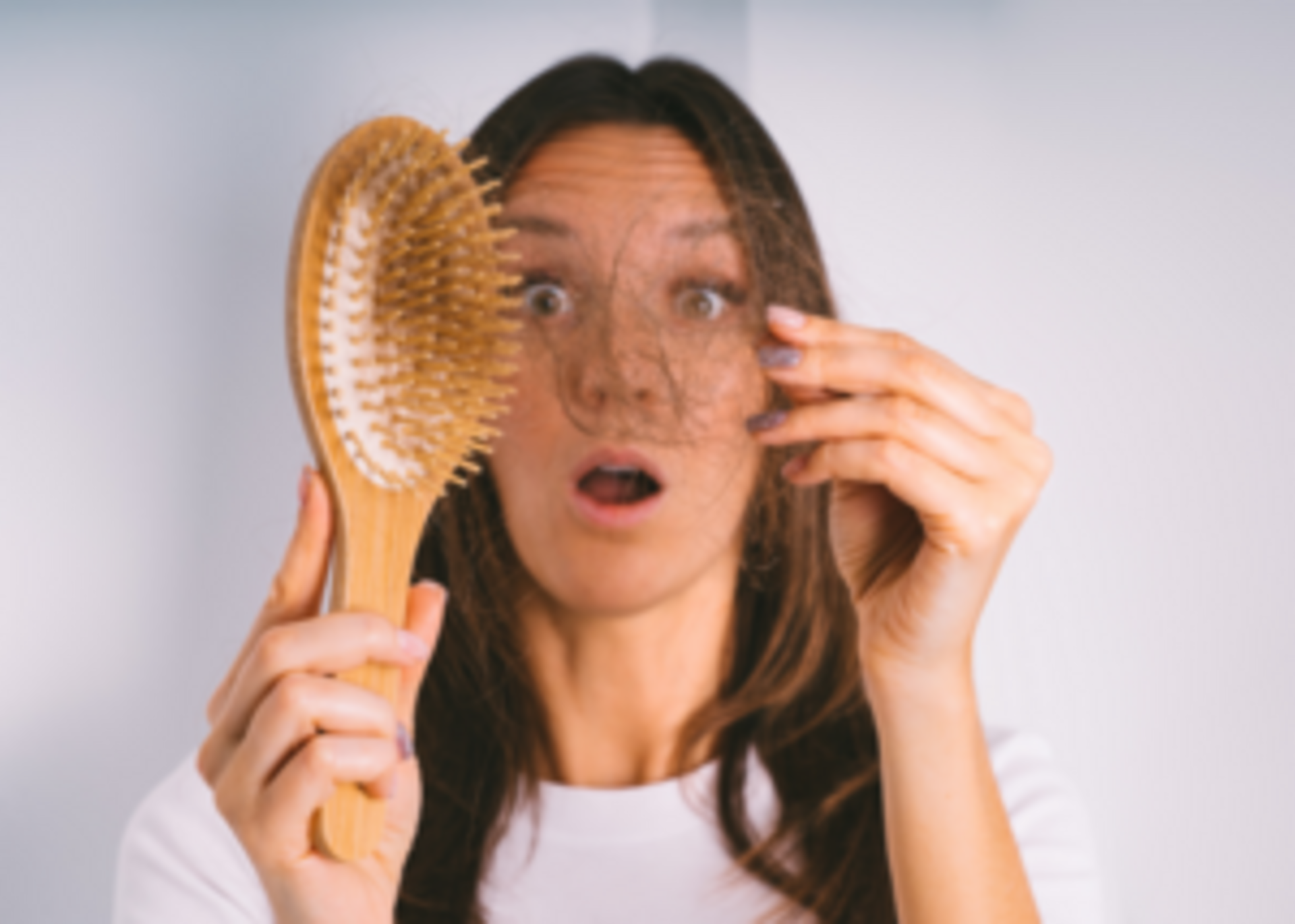Hair fall is a common concern that affects both men and women. While losing a few strands of hair daily is normal, excessive hair fall can be distressing and may indicate an underlying issue. Dr. Sandhya Hippargekar, a leading Consultant Cosmetologist & Dermatologist in Katraj Ambegaon, Pune, explains the various causes of hair fall, effective treatments, and preventive measures to maintain healthy hair.
Common Causes of Hair Fall
- Genetic Factors (Androgenetic Alopecia): One of the most common causes of hair loss is hereditary. Male and female pattern baldness is influenced by genetics and can start as early as the 20s or 30s.
- Hormonal Imbalances: Conditions such as polycystic ovary syndrome (PCOS), thyroid disorders, and menopause can lead to hormonal fluctuations, resulting in excessive hair shedding.
- Nutritional Deficiencies: A lack of essential nutrients like iron, biotin, vitamin D, and protein can weaken hair follicles and lead to hair loss.
- Stress and Lifestyle Factors: High levels of stress, inadequate sleep, and an unhealthy diet can contribute to hair fall. Chronic stress can trigger a condition called telogen effluvium, where large amounts of hair enter the shedding phase prematurely.
- Scalp Conditions: Dandruff, fungal infections, and conditions like seborrheic dermatitis or psoriasis can cause inflammation, weakening hair roots and leading to hair loss.
- Excessive Heat and Chemical Treatments: Frequent use of heat styling tools, hair coloring, and chemical treatments can damage hair and lead to breakage.
- Medical Conditions and Medications: Certain illnesses, such as diabetes, autoimmune diseases, and chemotherapy treatments, can cause temporary or permanent hair loss.
Effective Treatments for Hair Fall
Dr. Sandhya Hippargekar recommends customized treatment plans based on the cause and severity of hair fall. Some effective solutions include:
1. Topical Treatments
- Minoxidil: A widely used topical solution that stimulates hair growth and prevents further hair loss.
- Serums and Peptides: Specialized hair growth serums containing peptides and plant extracts nourish the scalp and strengthen hair follicles.
2. Oral Medications and Supplements
- Biotin and Multivitamins: Nutritional supplements containing biotin, iron, and amino acids can support hair health.
- Finasteride (For Men): A prescription medication that blocks DHT, a hormone linked to male pattern baldness.
3. Advanced Dermatological Procedures
- Platelet-Rich Plasma (PRP) Therapy: A non-surgical treatment where a patient’s own platelet-rich plasma is injected into the scalp to stimulate hair growth.
- Low-Level Laser Therapy (LLLT): A painless, FDA-approved treatment that enhances blood circulation in the scalp and promotes hair regrowth.
- Mesotherapy: Involves injecting a nutrient-rich cocktail into the scalp to revitalize hair follicles.
4. Lifestyle and Home Remedies
- Balanced Diet: Consuming protein-rich foods, leafy greens, nuts, and seeds can strengthen hair.
- Scalp Massage with Oils: Using coconut, castor, or rosemary oil can improve blood circulation and nourish hair roots.
- Stress Management: Yoga, meditation, and regular exercise help reduce stress-related hair loss.
Preventive Measures for Healthy Hair
- Use Mild, Sulfate-Free Shampoos: Harsh shampoos strip the scalp of natural oils and cause dryness, leading to breakage. Opt for mild, dermatologically tested products.
- Avoid Excessive Heat and Chemical Exposure: Reduce the use of blow dryers, straighteners, and harsh dyes to prevent hair damage.
- Maintain a Healthy Scalp: Regularly cleanse the scalp to prevent dandruff and infections that can weaken hair roots.
- Stay Hydrated and Eat Nutritious Foods: Proper hydration and a well-balanced diet play a crucial role in maintaining strong, healthy hair.
When to Consult a Dermatologist?
If you experience sudden, excessive hair fall, thinning patches, or visible bald spots, consulting a dermatologist like Dr. Sandhya Hippargekar can help diagnose the underlying cause and provide the right treatment. Early intervention increases the chances of effective hair restoration and regrowth.
By understanding the causes and taking timely action, you can prevent hair fall and maintain strong, healthy hair. If you're facing persistent hair loss, book a consultation with Dr. Sandhya Hippargekar in Ambegaon, Pune, for expert guidance and personalized treatment solutions.
Read More:
Fungal Infections: Causes and Treatments | Dr. Sandhya Hippargekar
